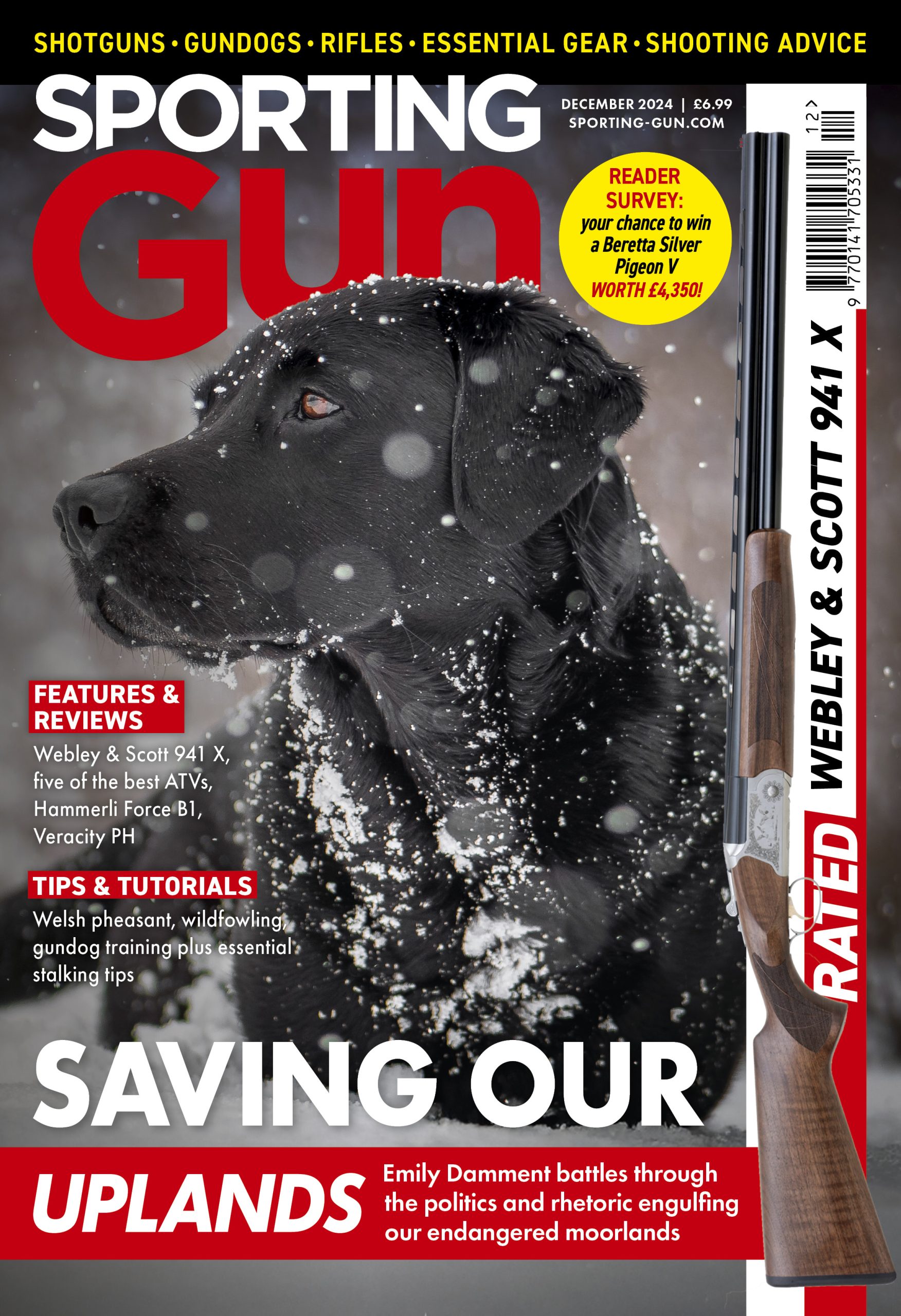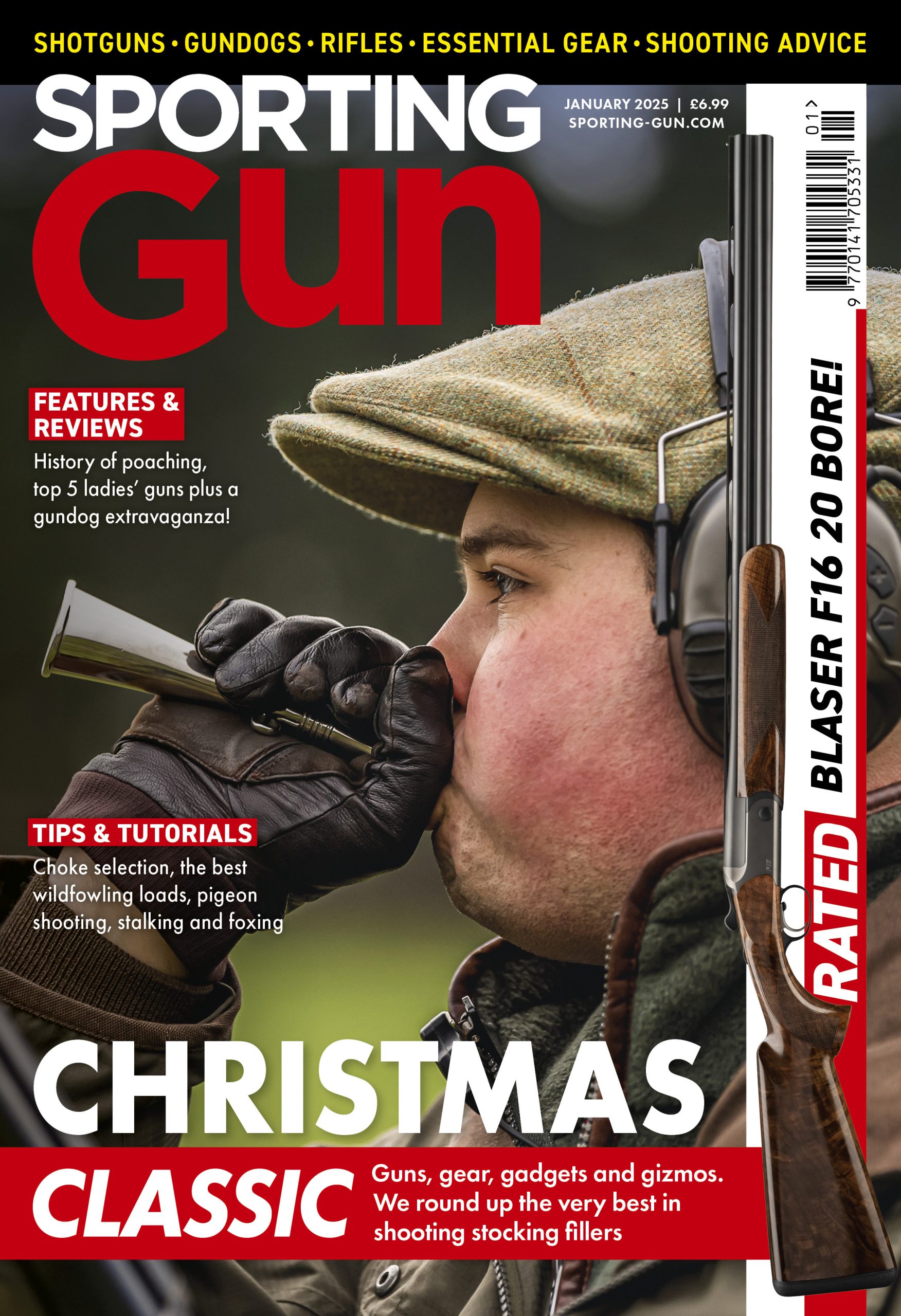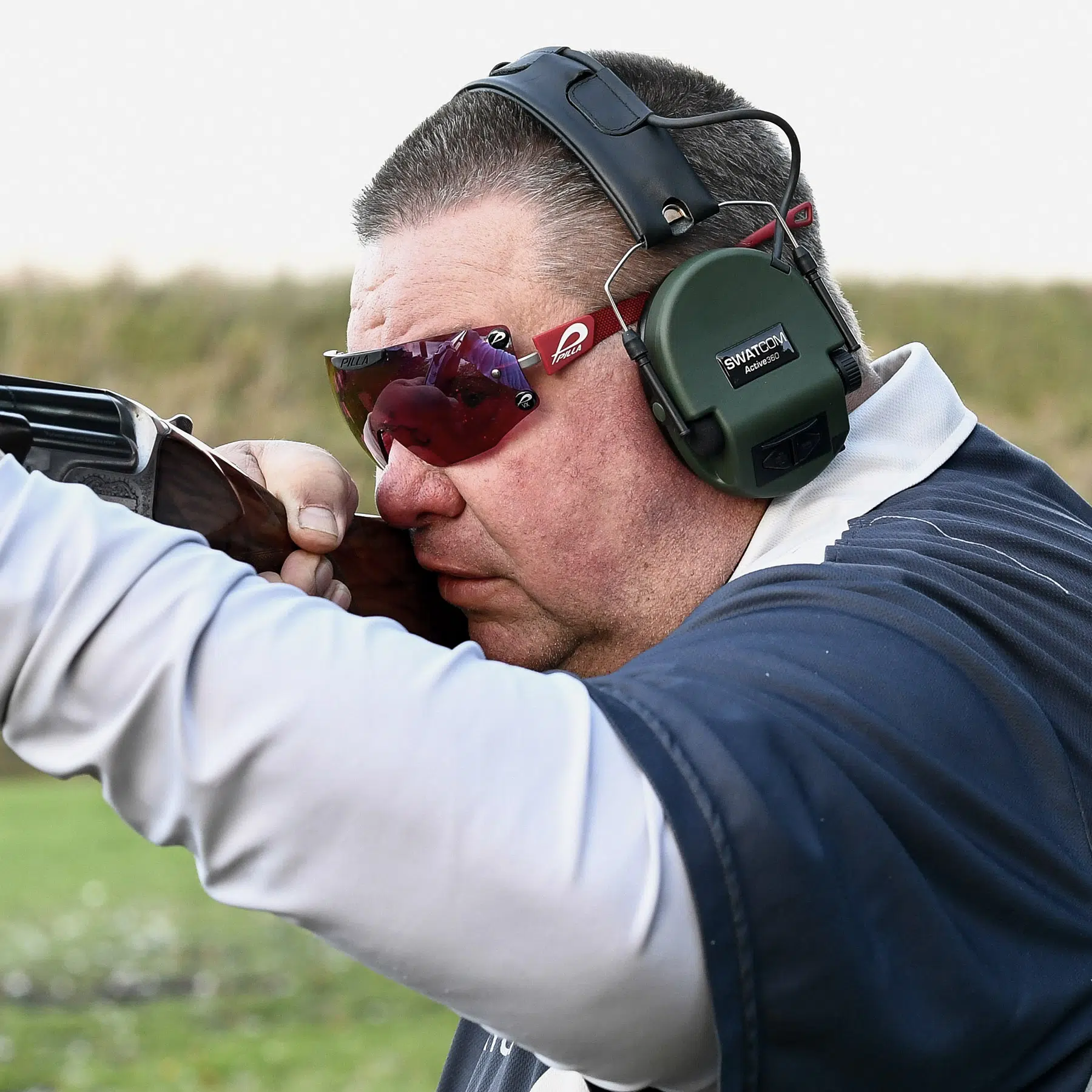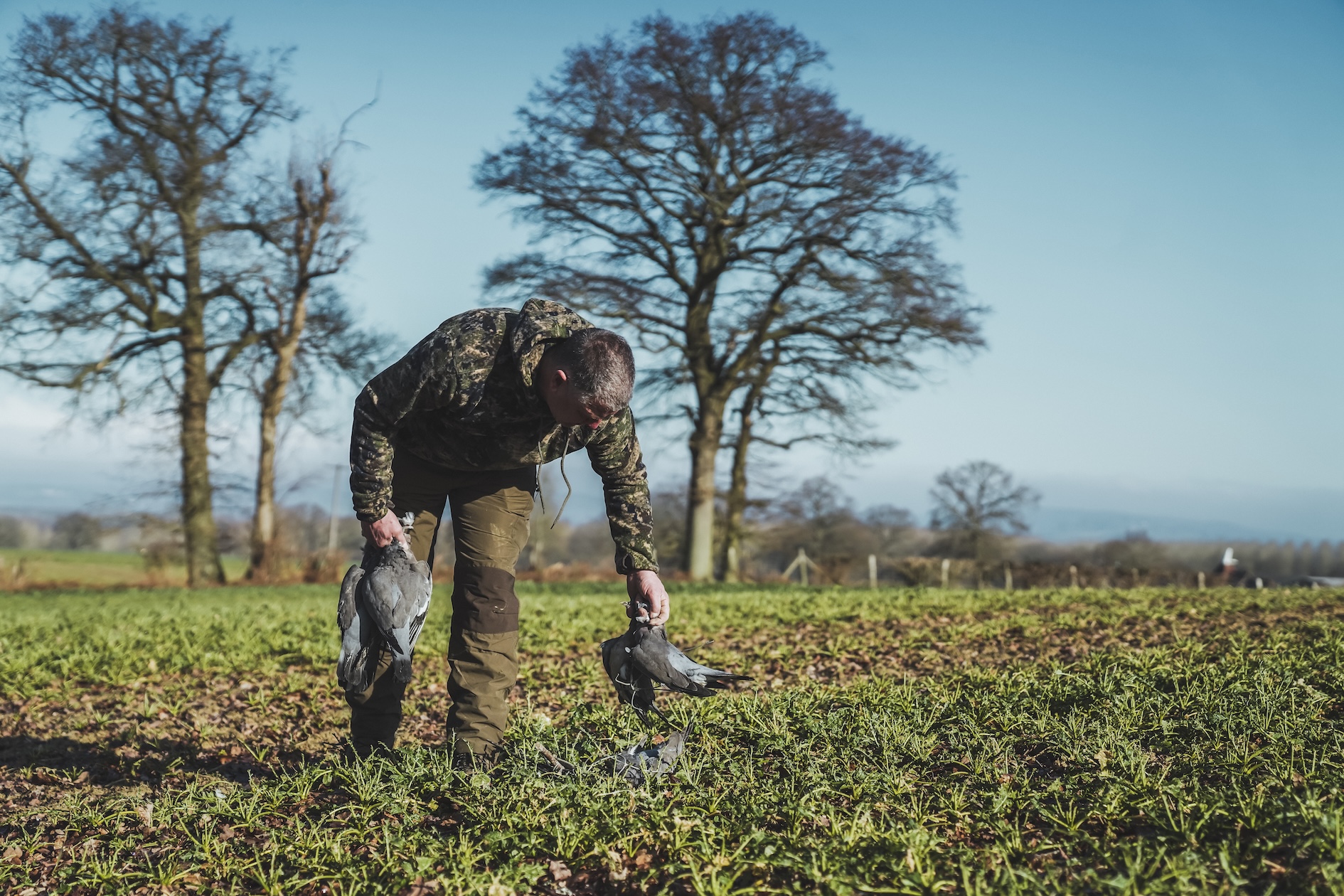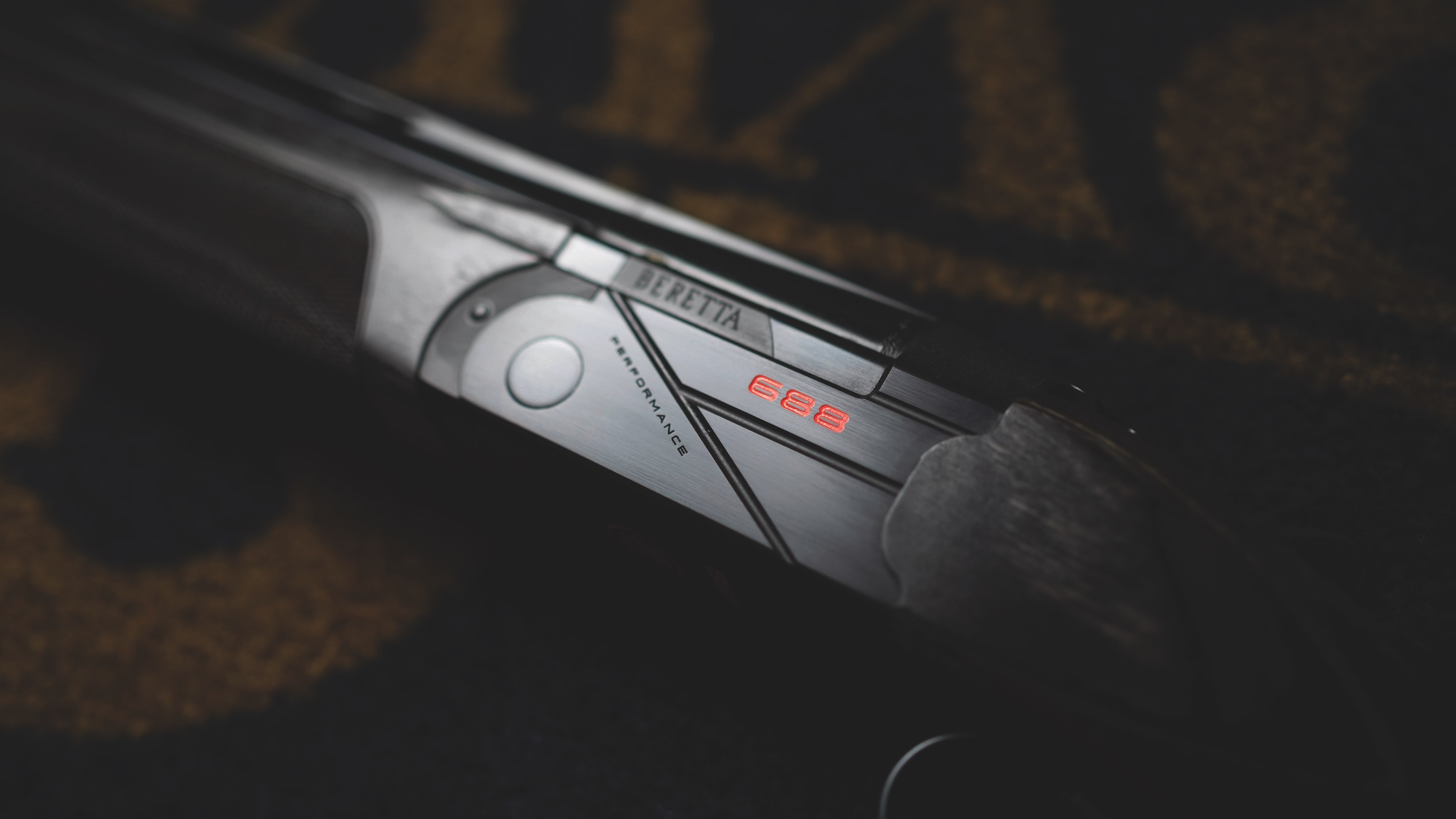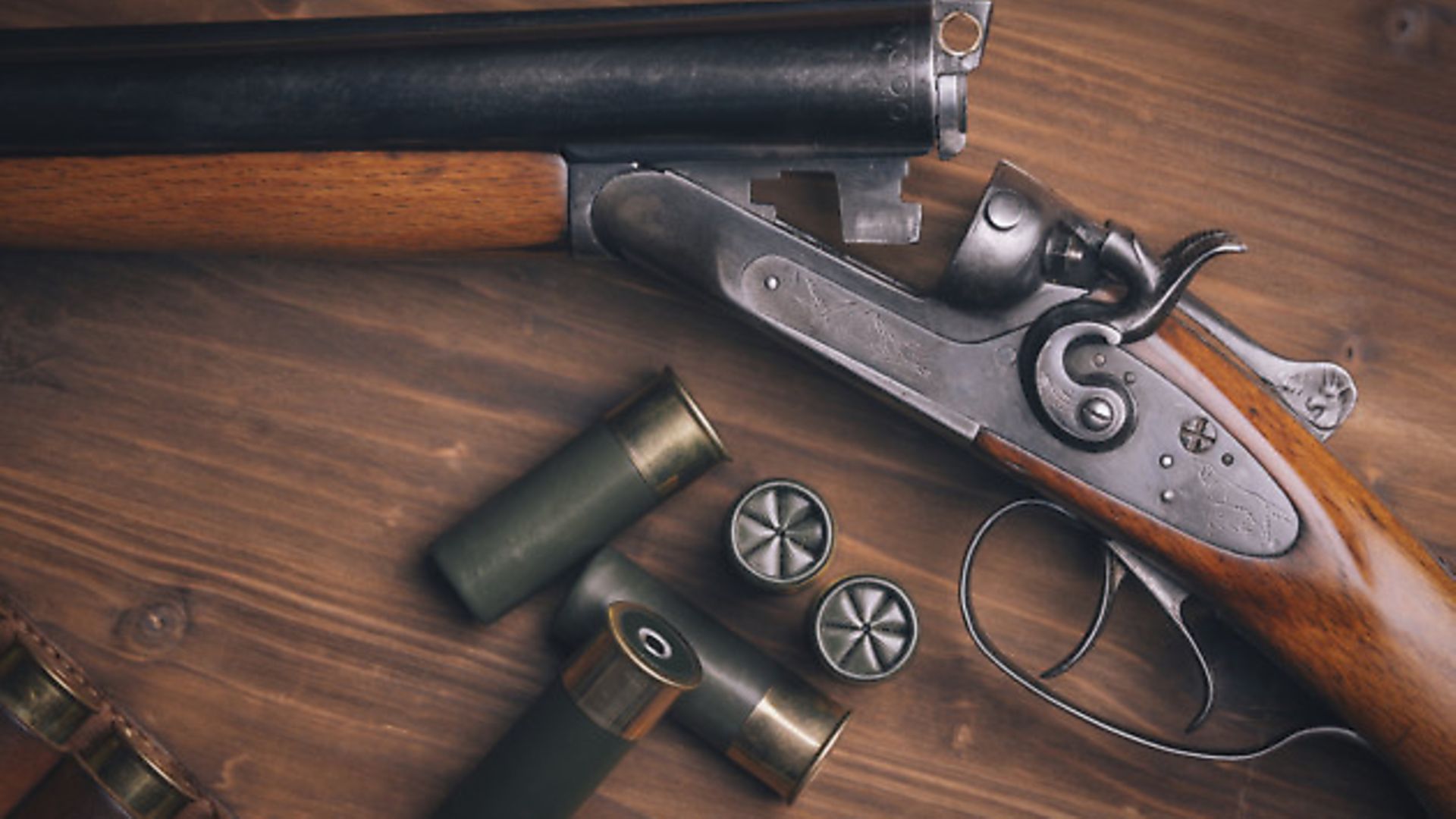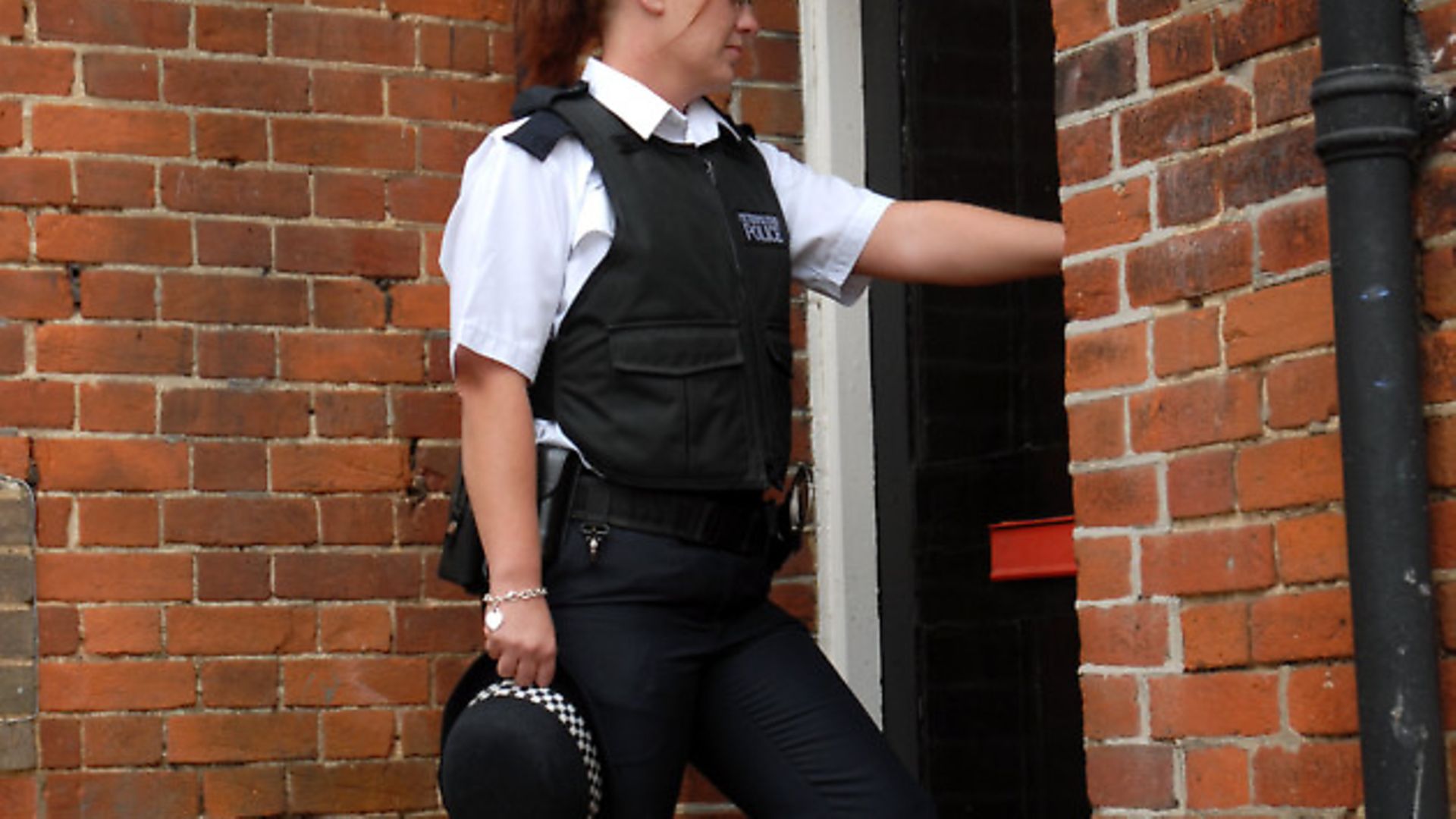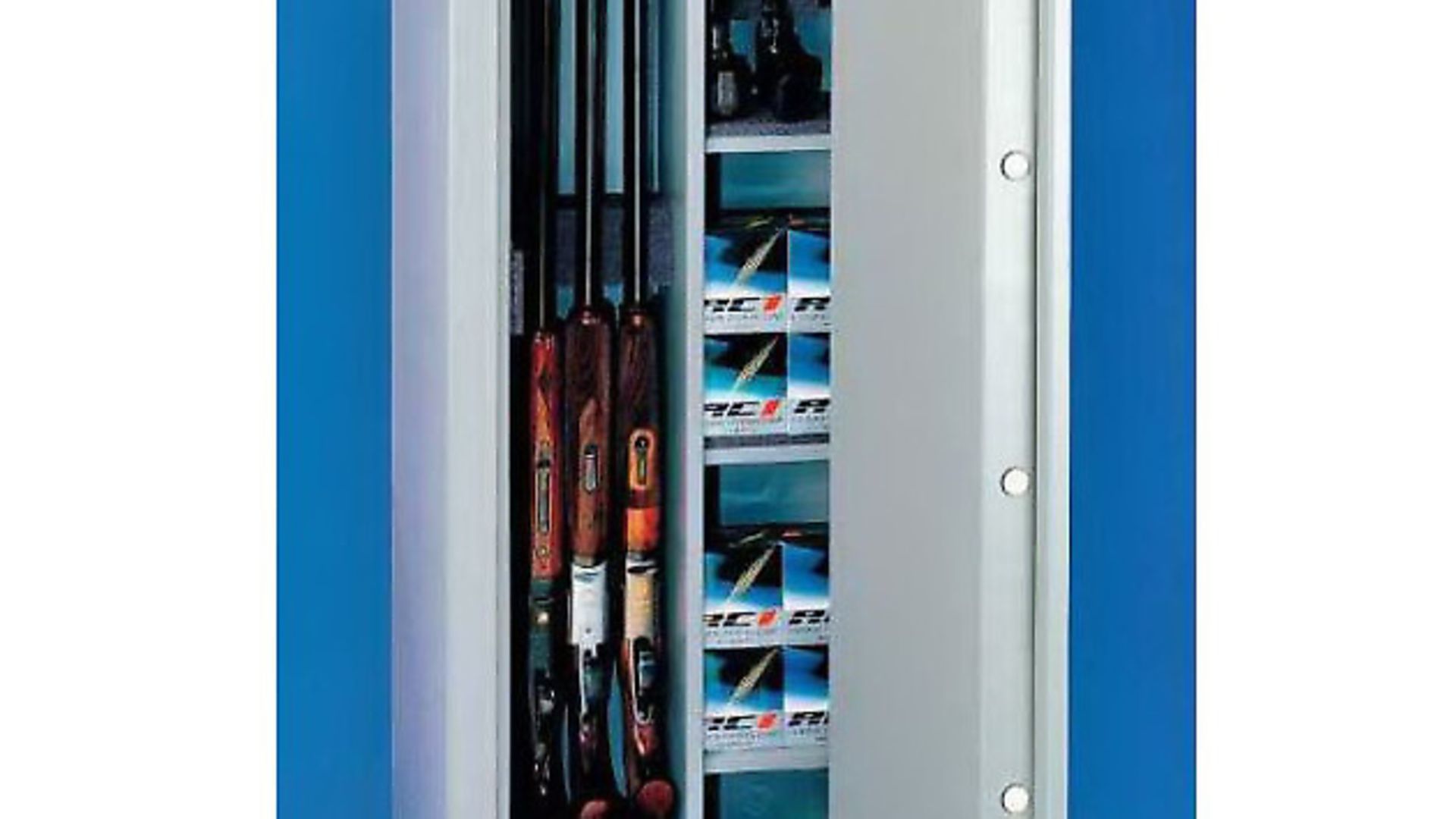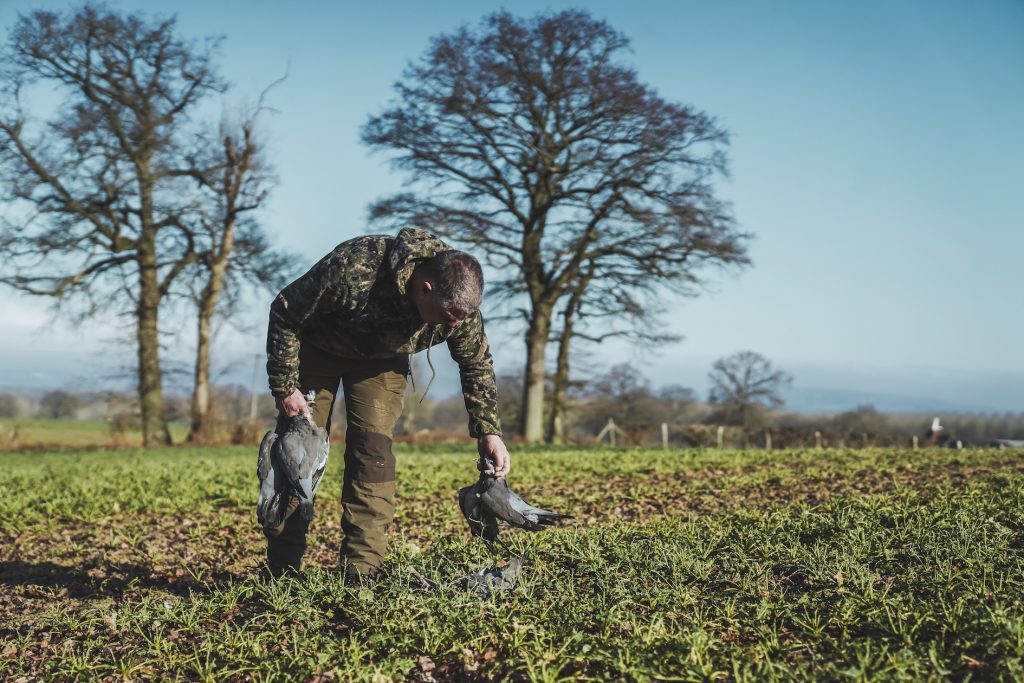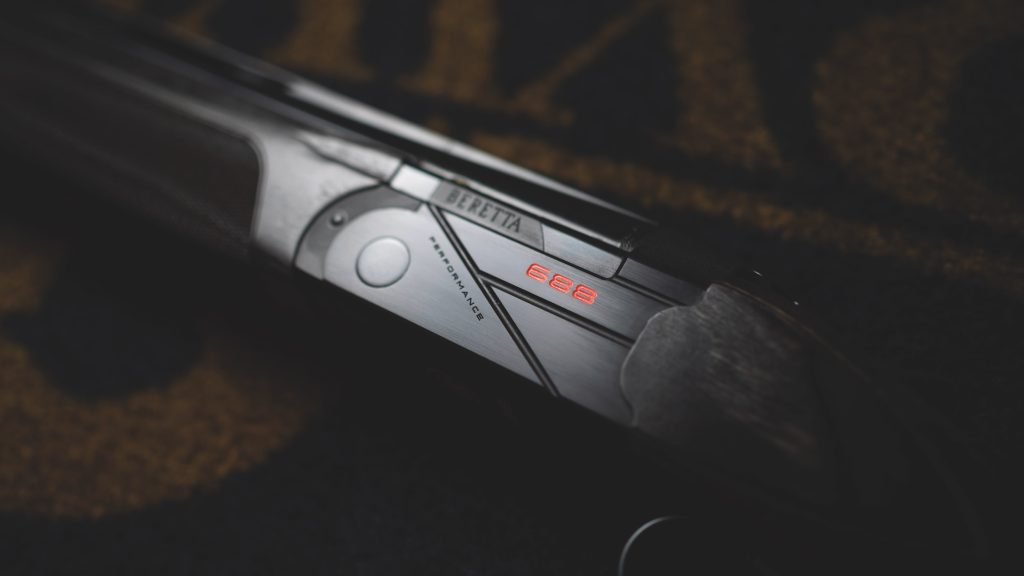★ Win a Schöffel Country shooting coat for everyone in your syndicate worth up to £6,000! Enter here ★
How to get your shotgun certificate
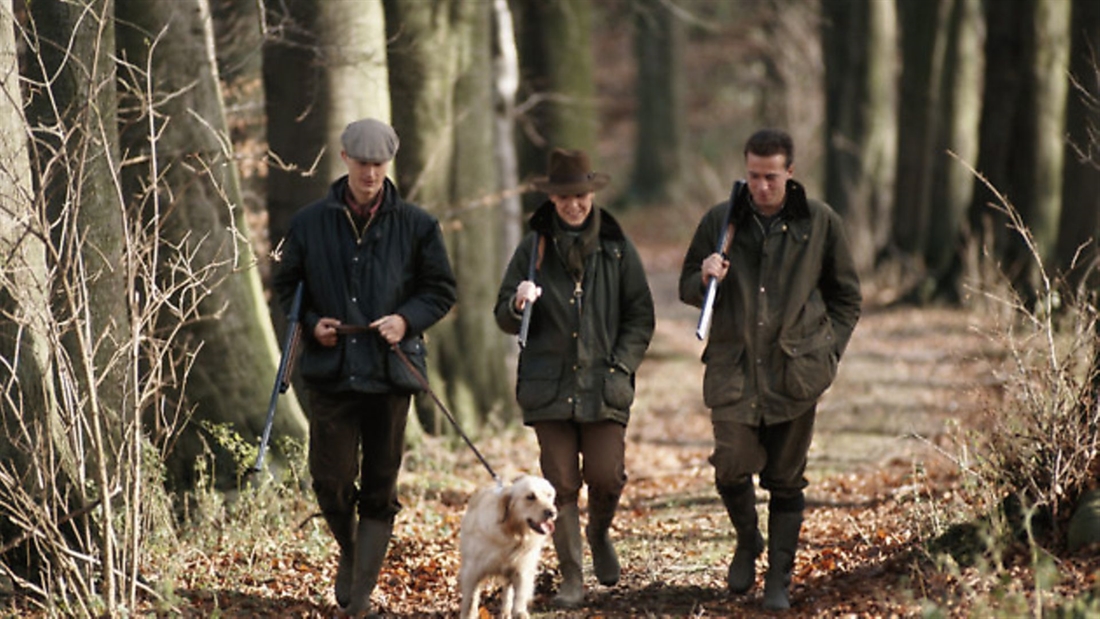
James Marchington talks us through the steps of how to get your shotgun certificate – it isn’t as hard as you might think!
You can get a feel for shotgun shooting without needing a certificate – just book a lesson at a shooting school, or go out with a friend who is happy to let you take a few shots with their gun while they supervise you closely. I do mean closely, by the way. They need to be standing right with you like a shooting instructor, paying close attention and able to take control of the gun at a moment’s notice. Before long you’ll want to have your own gun that suits you, as well as the freedom to buy your own ammo and shoot unaccompanied. That’s the point where you need to get a Shotgun Certificate from your local police. This will allow you to buy and keep a shotgun (‘acquire’ and ‘possess’ in the rather formal language of the Firearms Acts), purchase ammunition, and use the gun unsupervised.
The law defines a shotgun in a rather roundabout way, but basically any normal clay or game gun will be a ‘Section 2’ weapon in the eyes of the law, so you’ll need a Shotgun Certificate to own one. That includes side-by-sides and over-and-unders in the usual gauges, such as .410, 28-bore, 20-bore and 12-bore, as well as standard pump-actions and semi-autos of the type intended for rough shooting or wildfowling. There are different rules for a shotgun with a magazine that takes more than two cartridges, or has a very short barrel or short overall length, for instance if it has a folding buttstock. Those guns will fall under Section 1 and require a Firearms Certificate.
Are you applicable for a shotgun?
Assuming you’re after a normal Shotgun Certificate, the law presumes you are entitled to one, unless the police have a good reason to refuse you on the grounds that you’re a convicted criminal or are considered a danger to the public. This could be the moment your youthful indiscretions come back to haunt you! If you’re unsure whether you’ll be disqualified from owning a shotgun, get in touch with your local police firearms licensing department; they will be happy to talk it through with you. Once you’re ready to apply for a Shotgun Certificate, you’ll need an application form, ‘Form 201’, which you can download online. If you can’t find it on your local police website, it’s also available on the BASC website. The latest version of the form is designed for both Shotgun and Firearms applications, so read the notes carefully and make sure you fill in all the relevant parts.
Filling out the form
Go through the form carefully and truthfully, answering all the questions. There’s a section for your personal details – name, address, contact details, nationality, etc. Next is a ‘medical and health declaration’ where you must declare any health issues that might affect your suitability to possess a gun, and provide the details of your GP.
Next is the section where you must declare any previous convictions, cautions and so on. Remember that for the purposes of the Firearms Acts, convictions are never ‘spent’ – you have to own up to everything. Ticking the ‘yes’ box won’t necessarily disqualify you, that will depend on the circumstances. But don’t be tempted to be economical with the truth. Telling porkies on the form is a serious offence in its own right.
If you’re applying for your first Shotgun Certificate there will be no guns already in your possession to list on the next page, but you will need to fill in the section on your security arrangements. The law will require you to keep your guns secure so they can’t readily be stolen, and the Home Office issues detailed guidance on what’s expected. Basically, you’ll need to buy a metal gun cabinet that meets the required standard, site it where it’s out of sight for casual visitors to the house, and bolt it to a solid wall using Rawlbolts or the equivalent.
Finally, there’s a page of ‘equality information’ which asks about your age, ethnic group, sex and disability. Apparently this is processed separately from your application, and you don’t have to fill it in if you don’t want to.
The next part of the form is your ‘declaration’, which you sign to confirm that you’ve filled it in correctly. There’s a separate section for a parent or guardian to sign if you are under 18. This part also reminds you to send in four passport-style photos of yourself along with your application.
Purchase a gun safe
Your local gun shop will be happy to sell you a suitable cabinet, and advise you on where and how to fit it, but it’s also worth studying the official guidance. Go to www.gov.uk/firearms-licensing-police-guidance and download the document Firearms Security: A Brief Guide. By all means look at the other documents available on that website too, but you might need to set aside a few days to read them as they do go on a bit! For more info, visit here:
Sporting Shooter’s Guide to Gun Storage
Find yourself a referee
There will be a separate page on your form for your ‘referee’. This is where you fill in the name and details of someone who is prepared to vouch for you. The notes on the form explain who is, and is not, suitable to act as a referee. It needs to be someone of ‘good character’ who has known you for at least two years but is not an immediate family member, a firearms dealer or a police officer or employee. You’ll need to find someone suitable first and get their agreement before submitting their details. For a Shotgun Certificate you need only one referee, but a Firearms Certificate application requires two.
Home Inspection
At last, you are ready to send off your form, along with the photos and a cheque for the application fee, which has recently risen to £79.50. Now you must be patient and wait to hear back. A police Firearms Enquiry Officer will want to visit you at home to check the details of your application. They will inspect your gun cabinet to see that it meets the requirements, and offer advice on how to look after the keys. They will also quiz you about why you want a gun. In theory you don’t have to prove a ‘good reason’ for wanting a shotgun, but in practice if you refuse to discuss your reasons it could raise doubts.
Background Checks
Behind the scenes, the police will also check out your records, contact your referee and may also look into your medical records if they have any reason for concern. Provided all goes well, and you receive your Shotgun Certificate, you can now go out and buy whatever shotguns you fancy – there is no restriction on what shotguns you own, or how many. The police need to be notified of each gun you buy or sell, and your certificate updated and signed by the seller. Before you get too carried away, remember that all your
shotguns must be stored in your secure cabinet, so don’t allow your collection to exceed the cabinet’s capacity.
Congratulations – you are now officially a shotgun shooter! Remember that it’s a serious responsibility, and a privilege that can be taken away at any time if you give the police any reason to doubt your suitability.
Finally, if you aren’t already a member of the appropriate organisation, such as BASC or CPSA, this would be a good time to join. They provide valuable insurance cover and advice to members, as well as campaigning on behalf of shooting.
Good luck, and let’s hope this is the start of a lifetime’s enjoyment of a great sport!
Related Articles
Get the latest news delivered direct to your door
Subscribe to Sporting Gun
Subscribe to Sporting Gun magazine and immerse yourself in the world of clay, game and rough shooting. As the leading monthly publication for passionate shooters at all levels, Sporting Gun delivers expert advice, practical tips and in-depth reviews to enhance your skills and enjoyment of the sport.
With features ranging from gundog training to pigeon shooting, and wildfowling to equipment recommendations, you’ll gain valuable insights from professional shooters and industry experts. A subscription not only saves you money on the cover price but also includes £2 million Public Liability Insurance, covering the use of shotguns, rifles and airguns for both recreational and professional use.
